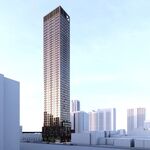Seesus
Active Member
Happy Family day every one 
I am sorry in advance if this has been asked before, i am just trying to work my numbers and am not quite sure how to work them in order to prepare for the closing. I am first time home buyer and have bought a Condo worth apprx. 300 K closing in 2013.
What costs am i looking at to close this preconstruction, I part of ltt comes back to the first time home buyer - what other rebates can i take use of being a first timer ?
I do not have a cap on my closing costs with the builder and i am hearing educational levies, tree planting charges and a number of other variables ?
Any and all hints will be great as i was thinking of compiling a total list of costs i am looking at versus estimated rebates i will clear on this at the time of closing.
Thank You all.
I am sorry in advance if this has been asked before, i am just trying to work my numbers and am not quite sure how to work them in order to prepare for the closing. I am first time home buyer and have bought a Condo worth apprx. 300 K closing in 2013.
What costs am i looking at to close this preconstruction, I part of ltt comes back to the first time home buyer - what other rebates can i take use of being a first timer ?
I do not have a cap on my closing costs with the builder and i am hearing educational levies, tree planting charges and a number of other variables ?
Any and all hints will be great as i was thinking of compiling a total list of costs i am looking at versus estimated rebates i will clear on this at the time of closing.
Thank You all.




